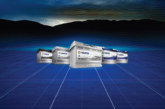With articles on harmful toxins and air quality hitting the mainstream media on a regular basis, BM Catalysts’ Commercial Director Mark Blinston provides some clarity on the issue, commenting on the effects the tightening EU emissions standards are having on the UK market.
Emissions are a hot topic for discussion at the moment for many media outlets and manufacturers. Much of the talk is on improving air quality and reducing the impact of harmful automotive emissions on the environment. In July, some of the biggest car brands were highlighted to be manipulating vehicle emissions tests in a bid to inflate EU emissions targets in 2020. Despite this resistance, there is a clear and distinct effort being made in the aftermarket to reduce emissions and ensure the reliability of emissions data. A huge part of this is preventing the sale and fitting of catalytic converters and DPFs to vehicles that haven’t been approved to comply with the relevant Euro levels.
Vehicles and replacement emission control devices must meet specific standards for exhaust emissions before they can be offered for sale in the European Union. Automobile emissions are one of a series of performance standards that must be met to achieve Whole Vehicle Type Approval in accordance with EC Directives. In order to achieve type approval on the emissions levels for replacement emission control devices (catalytic converters and diesel particulate filters), performance and noise levels must be within calculated limits as prescribed by legislation. Replacement catalytic converters and diesel particulate filters (DPFs) cannot be approved to a lower Euro level than that of the original vehicle; so, if the vehicle is Euro 5, then the replacement must be approved to Euro 5 levels. Testing and approving this part to Euro 4 would mean that it cannot be proven to meet emission standards and therefore cannot legally be fitted to any Euro 5 vehicle.
Helping to identify the correct products for stockists and garage professionals, the MAM software solution program is set to revolutionise the aftermarket this year. Used by the majority of distributors, the supply chain software is due to receive a V9 update, which will map the Euro level that a supplier’s part is approved for sale on against a vehicle registration number. Once the change is in place, we’ll start to see the correct catalytic converters and DPFs available matched against the correct vehicles for the first time. Additionally, the Department for Transport (DfT) is also helping to clarify the rules for the UK market, with recent guidelines reiterating the strict requirements for selling catalytic converters and DPFs to the UK market.
However, while the correct cataloguing of aftermarket parts is complex and challenging, perhaps the biggest shake up to the emissions market is the recent MOT changes. The result of an EU directive, new regulations were introduced to the MOT test in May 2018, placing further emphasis on diesel emissions. The regulations require checks to the exhaust for visible smoke production and tampering or removal of the DPF. Any visible sign of alteration to the DPF or smoke of any colour will result in a fail for the vehicle. Prior to these tighter regulations, experts warned that the true figure of vehicles driving without DPFs were in the thousands, leaving many car owners at risk of hefty fines and penalty points.
BM Catalysts acknowledges the need for up-to-date, reliable information on EU levels in order to help distributors and garages supply and fit the correct DPFs and catalytic converters to the correct vehicles. As a leading manufacturer in Europe, we recognise we are a big part in meeting emissions standards, consistently steering our efforts towards an extensive R&D programme that produces superior aftermarket products with the least harm to the environment. Additionally, we have recently produced free educational material on DPFs and the MOT changes to help our customers independently make informed motoring decisions.
BM Catalysts produce catalytic converters and DPFs to high standards, yet to create a lasting change to the market, it is important that all hands along the supply chain, even the consumer, do their part to make sure they’re complying to regulations. If one link in this chain proves weak, we all fail.








